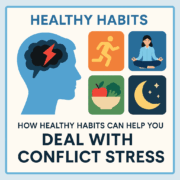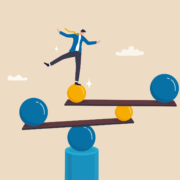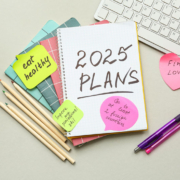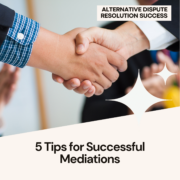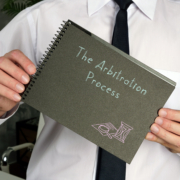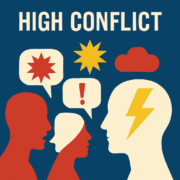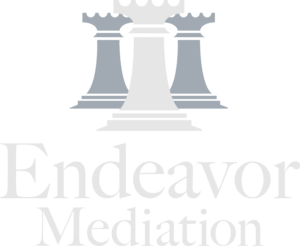Thriving Under Conflict Stress: Exercise, Meditation, Sleep and Connection as Your Allies
May is Mental Health Awareness month, so let’s talk about stress and its effects! Litigators and trial lawyers are some of my favorite people because of the intense work ethic and bravery they have. Not only do they have to go to college, law school, and pass the bar exam- but then they must spend years honing the craft of persuasive argument while also practicing the delivery of that argument to seasoned litigators, judges, and lay people. It takes a special kind of person to be able to stand in front of a group of strangers in a court room, pour their heart out in argument for their position, and then wait in suspense as they decide whether to believe them or not. Waiting for a verdict can be some of the slowest moments a trial lawyer will ever experience in their life. But all that intensity sometimes comes at a price. The effects of that stress on the body eventually take a toll, especially as litigators grow in their careers.
Conflict and litigation – whether you’re the attorney or the client – can feel like an endurance test for both mind and body. The legal profession is notorious for its high-stress environment: lawyers juggle multiple cases, strict deadlines, and complex adversarial situations. The impacts of this stress do not stop with the attorneys, however, as the parties to the legal disputes also often experience chronic stress symptoms such as insomnia, impaired concentration, and even physical illness. This type of conflict can keep the body’s fight-or-flight response stuck in overdrive where stress hormones like cortisol and adrenaline flood our system, raising anxiety and causing negative effects on our health.
So, what can be done about it? Well, the good news is that science shows healthy lifestyle habits can act as powerful buffers against this stress. Regular exercise, meditation, sound nutrition, adequate sleep and meaningful connection with others can counteract the body’s stress response in unique ways. These aren’t just “feel-good” tips – they are evidence-based practices that calm the nervous system and build mental resilience. Below, we explore the science behind how each habit impacts your body’s response to stress and offer practical advice to fit them into a busy litigation lifestyle. Whether you’re a trial attorney facing the pressures of the courtroom or an individual battling through a high conflict lawsuit, these habits can help you stay calmer, clearer, and healthier when the stress is high.
Exercise: Physical Activity as Stress Relief
Breaking a sweat is one of the most effective natural stress remedies. When you exercise, your body chemistry changes in ways that blunt the stress response. Physical activity lowers levels of stress hormones like cortisol and adrenaline, while simultaneously boosting endorphins – the brain’s feel-good neurotransmitters. This surge of endorphins is what produces that post-workout “runner’s high,” a relaxed and optimistic feeling after moderate or intense exercise.[i] Exercise also helps the body practice dealing with stress by imitating the fight-or-flight response in a healthy context. These small micro-stress sessions help to train the body how to deal with stress in a safer environment. Over time, regular exercise can reduce the physical effects of stress – for example, it lowers resting heart rate and blood pressure, improves your body’s stress tolerance, and protects against stress-related illnesses. Beyond the biochemical effects, there’s a psychological boost too. Spending time dedicated to exercise also provides a mental timeout from legal worries. Focusing on weightlifting technique, a yoga pose, or simply the rhythm of your breath while running can pull your mind away from case anxieties and into the present moment. Regular workouts also improve self-confidence and sleep quality, both of which fortify you against daily stress. But how do you fit in the time to exercise when you are working all the time? Read below to find out!
Tips to Fit It In: Incorporating exercise into a busy, high-pressure work-life can be challenging, but it’s doable with some strategy:
-
Early Morning, Micro-Workouts or Transition: Everyone has a different schedule, so pick the time that works for you to be most successful at exercising. Whether you are an early riser or prefer to exercise after a stressful day, schedule the time so that it actually happens. Another option is to do 10–15 minute “micro” workouts during work day breaks – these short bursts of activity can lower tension and re-energize your mind.[ii] A walking treadmill at your desk is also an easy way to get in additional steps.
-
Mix Enjoyment with Movement: Pick activities you actually enjoy so that exercise isn’t another dreaded task. Whether it is doing a spinning class with a friend or taking a hike in nature, it is important to associate positive feelings with the exercise in order to create the habit.
-
Stack it with Routine: Tie exercise to an existing daily habit. For example, walk your dog in the morning and take an extra loop, or do a set of body-weight exercises right after you log off your computer each evening. Embedding movement into your schedule makes you less likely to skip it when things get busy.
Mindfulness & Meditation: Training the Relaxation Response
When stress from conflict is sky-high, mindfulness meditation is like a pressure valve for your nervous system. While meditation is certainly having a popularity moment, it has been used for centuries in many various forms to elicit the relaxation response. During meditation (or deep breathing, yoga, prayer – any mindful relaxation technique), the parasympathetic nervous system is activated, sending your body a message that it’s safe to calm down. Heart rate and blood pressure drop, muscle tension eases, and brainwave patterns shift. But being calm is not the best side effect- regular meditation practice can lower stress hormone levels, promote clearer concentration, improve cognition, encourage creative thought and empathy- and also help to reduce reactivity. A regular meditation practice can truly offer not only a “calm in the storm,” but can also help provide those “eureka” moments that lead to professional success.
Tips to Fit It In: You don’t have to escape to a monastery or chant for 5 hours a day to reap the benefits of mindfulness. Here’s how busy professionals can weave meditation into their day:
-
Check out an App or Watch a Few Videos: There is a veritable plethora of information on how to meditate online. From free Meditation Apps to “how to” videos on YouTube or TikTok, it is easy to learn how to meditate. If structure is better for you, consider a meditation app with scheduled sessions. If you prefer less commitment, try watching a few videos or perhaps even just doing it on your own.
-
Start with a Few Minutes: Begin with just 3–5 minutes of quiet breathing each day. For example, while you have your morning coffee or while you sit at your desk, close your eyes, and focus on slow, deep breaths for a few minutes. Even short sessions can start training your relaxation response. As it becomes comfortable, gradually increase the time. What really matters is consistency, not necessarily length of time. The more often you do it, the quicker you can reach that “calm in the storm”. In the beginning, just aim to do it daily or at least a few times a week. Over time, with consistent practice, you can do lengthier sessions if you wish.
-
Breathing Breaks in High-Stress Moments: When you feel stress surging (heart pounding before a big hearing or anger rising during a contentious meeting), take a strategic timeout. Excuse yourself for a bathroom break or simply pause at your desk to do a one-minute breathing exercise: inhale for a count of 4, exhale for count of 4 or 6, and repeat. This kind of slow, extended exhale breathing activates the vagus nerve and quickly calms the sympathetic “fight or flight” response. After some time of consistent practice, these moments of awareness will become second nature and you can train your body to automatically relax.
-
Mindfulness in Routine Activities: Not all mindfulness looks like sitting on a cushion. You can practice being fully present during everyday tasks such as when walking or doing a basic task like washing the dishes. The focus is to be present and stop the mental muti-tasking or run-away thoughts that have become so pervasive in our everyday lives. Sometimes, by just being “present,” the body will calm down.
Sleep: Recovery for Body and Mind
Sleep is often the first casualty of high-stress periods like trial prep or waiting for a verdict. Ironically, it’s also one of the most crucial factors in managing stress and maintaining mental health. Quality sleep restores a sense of balance in the brain and body that nothing else can. During deep sleep, stress hormone levels naturally fall and the brain’s emotional circuits reset, which is why after a good night’s sleep we typically feel more stable and less reactive. On the other hand, even one sleepless night can send stress levels skyrocketing. There is a documented link between sleep deprivation and increased cortisol levels in the body, meaning your body is literally acting as if under attack when you haven’t had enough rest. Over time, poor sleep not only harms health and concentration, it also erodes your emotional resilience, making you more susceptible to anxiety, depression, and burnout. For lawyers and litigants, prioritizing sleep is not a luxury – it’s a necessity. Sufficient sleep (experts recommend 7–9 hours for most adults) improves cognitive functions critical to legal work: memory, focus, complex reasoning, and emotional regulation. It’s much easier to manage a heated negotiation or unexpected setback when you’re well-rested; you’re less likely to snap at others or make reckless decisions. Conversely, chronic sleep loss lead to slower reflexes and impaired reasoning. By getting regular, high-quality sleep, you allow your body to physically dissipate stress hormones and your mind to consolidate memories and reset mood. If there is one keystone habit for wellness under stress, sleep is it.
Tips to Fit It In: When you’re busy and stressed, making time for sleep and improving its quality will pay dividends. But that can feel like an uphill battle. Here’s how to prioritize sleep even during a hectic litigation and work schedule:
-
Build Your Sleep Castle: Set the stage for recuperative sleep- review your bedroom environment and take an audit. Is it calming? Are there any disturbing lights? Is there ambient noise that can disturb your sleep? Are your bed and sheets comfortable? How is the temperature? Review your bedroom and make sure that it is truly the most calming place it can be. Sometimes that even means removing TVs or computers if they have lights or noises that cause you to wake up.
-
Protect Your Time Window: Treat sleep as a non-negotiable appointment with yourself. Aim for a consistent bedtime and wake time, even if work is demanding. For instance, if you know you have to be up by 6:30 AM to get to court, try to have lights out by 11:00 PM at the latest. This might mean setting an alarm at night reminding you to start winding down by 9 or 10 pm at the latest. Avoid the temptation to steal hours from sleep to get just one more task done – chronic shortcuts here will cost you more in efficiency and well-being long term.
-
Create a Wind-Down Routine: It’s hard to go from the adrenaline of late-night trial prep straight into peaceful slumber. Develop a pre-bedtime routine that signals your brain it’s time to disconnect. This might include 30 minutes of reading (non-work related) or listening to calming music, taking a warm shower, doing gentle yoga stretches, or practicing a relaxation technique like deep breathing or progressive muscle relaxation. Many find it helpful to limit electronic screens in that last half-hour because blue light from devices can trick your brain into wakefulness. If the news or social media tend to get you down, resist the temptation to take your phone with you to bed- it can be hard to fall asleep after reading or watching content that causes stress. Consider dimming lights and keeping the environment cool and dark – setting the stage for quality sleep.
-
Manage Work and Naps Wisely: Naps are not just for babies! Research indicates well times naps can help with stress levels and concentration. If you’re working very long hours, you might consider a power nap (15–20 minutes) in the afternoon to recharge – but be careful not to nap too late in the day or for too long, as that can interfere with nighttime sleep. Additionally, try to wrap up intense work a bit before bedtime. For example, resist the urge to read deposition transcripts until bedtime- instead try to stop at least 30 minutes before so the brain has time to calm down for sleep.
-
Address Sleep Problems Proactively: If stress is keeping you from sleeping or causes you to wake up after just a few hours of shut-eye, don’t accept sleeplessness as unavoidable. Use relaxation techniques at bedtime to help ease your body into sleep. Some people find white noise machines or phone apps with soothing sounds helpful to drown out a busy mind. To avoid the dreaded 2 AM wake up, try watching your intake of caffeine, stimulants, and alcohol, especially late in the day. Surprisingly, caffeine can linger for hours, and while alcohol might make you drowsy, it fragments your sleep quality and can lead to fitful bouts of midnight waking. But even if you do wake up, strategies like meditation and “box breathing” can help you fall back to sleep quickly. Research indicates that some of the most restorative sleep follows the Circadian rhythm. If insomnia, frequent waking, or anxiety about sleep becomes persistent, consider reaching out to a healthcare professional for additional strategies. Remember, getting the rest you need is one of the most effective ways to reduce stress and be at your best not just in the legal arena but also in the rest of your life.
“Zoom Fatigue”: The Hidden Energy Drain
It’s not all in your mind- fatigue when using virtual video platforms is real and we are slowly learning why and how it happens as remote work and virtual hearings have become common in legal practice. While virtual meetings have made access to legal proceedings easier than ever, a new kind of exhaustion has taken center stage. Many attorneys, judges, legal staff, and clients alike report feeling drained after a day of virtual meetings. Stanford researchers have studied the phenomenon and identified four major contributors to this exhaustion: excessive close-up eye contact, constant self-viewing, limited mobility, and increased cognitive load required to process nonverbal cues over video.[iii]
Unlike in-person interactions, where our peripheral vision helps us absorb cues and body language naturally, video calls and virtual meetings require intense sustained focus on a small screen to interpret tone, facial expressions, and engagement – all while simultaneously managing our own appearance and background. This creates a kind of hypervigilance, triggering stress. Moreover, on video we often feel compelled to appear “on” at all times, which increases emotional labor.[iv] For trial lawyers used to the quick dynamic nature of courtrooms or conferences, this way of working can feel particularly unnatural. And for litigants or clients, attending virtual hearings or depositions from home can blur boundaries, increase distractions, and increase stress.
Tips to Reduce Virtual Platform Fatigue:
-
Turn off self-view during calls when possible to reduce strain and subconscious anxiety.
-
Consider using a real background instead of blur. Early research on how backgrounds are perceived by virtual platform users indicates that viewers are consciously and subconsciously curious about what may be in the blurred background. This can cause other zoom participants to lose focus on what you are saying or showing as well.[v]
-
Schedule screen breaks between meetings if the meeting may go over an hour at a time.
-
Use phone calls instead of video when face-to-face isn’t essential.
-
Consider a sit/stand desk that allows you to get up from your chair even while you are on zoom.
-
If you have a wireless headset, you can take calls while walking around the room or at least stand.
-
Consider a desk walking pad, treadmill or under-the-desk cycle machine if you are tied to zoom for hours on end, such as for a deposition or meetings. It is easy to install these under a sit/stand desk and with proper camera positioning, you can move on the walking pad without it affecting how the camera captures you. Just a little bit of movement each hour can make a life altering difference to your energy level and physical
-
Have drinks and snacks handy if the meeting takes over an hour. Talk to the participants about mealtime expectations- don’t assume they will break for lunch or dinner!
-
Manage expectations and set clear start and end times for virtual meetings to protect boundaries.
Understanding and acknowledging video conferencing fatigue isn’t just about comfort – it’s about preserving mental bandwidth in a high-stress profession. The screen may be efficient, but it can come come at a neurological cost. Managing this kind of fatigue intentionally can help maintain clarity and composure, both during conflict and throughout your legal day.
Connection: The Superpower Hidden within All of Us
While stress can cause many physical symptoms, it has many intangible effects as well. By far one of the most far-reaching is its ability to foster and encourage loneliness. When people are under stress, they naturally self-isolate out of fear or anxiety or just being plain overwhelmed. In addition, when countless hours are needed to finish complex projects or to prepare for a trial, it is to be expected that litigators and litigants alike will experience loneliness.[vi] But the legal profession is not alone in dealing with this issue, social disconnection has become so pervasive that numerous countries have appointed special ministers to combat what they consider the significant public health crisis of loneliness.[vii] Between the isolation caused by electronic devices, the discord prevalent over social and political issues, and the overwhelming demands of work, it is no wonder that many lawyers continue to feel the intense feelings of loneliness on a daily basis. However, as with the other effects of stress, this too can be changed with a few simple strategies.
Tips to Foster Connection:
-
Volunteer for something that you are passionate about: Sometimes loneliness is caused by not having others interested in the same topics you are. If you are passionate about art or dogs or something else- consider volunteering just a few hours a month with an organization in that area. You will soon meet like minded people that will connect with you in an area you enjoy.
-
Sports and Exercise: If exercise is one of your favorite stress relievers, consider doing it with a buddy. Whether it is a jogging partner, someone that can spot you on deadlifts or a pickleball buddy, having a partner doing a physical activity with you can not only help you exercise consistently, they can also foster connection and positive feelings.
-
Hobbies are not just for retirees: With the intense time commitment needed to be successful as a litigator, it can seem impossible to have a hobby. But being lonely can in and of itself become a hobby. Consider taking up an art class or gardening club – or perhaps doing something you have never done before such as Improv Comedy. Sharing a similar interest can foster connection and promote positive feelings that will far outlast the time spent on the activity.
-
Not every lunch needs to be at your desk: Its really easy to just sit at your desk for every meal- but those are lost opportunities to not only get some exercise but to also foster connections with coworkers or to maintain friendships with people outside of work. Whether it is just meeting for a 15 minute brown bag lunch or a two hour wine and dine- sharing a meal with others is a great way to reset the mind and create a buffer from the stress of work.
-
Smile and Say Hello: It can be hard to put yourself out there to make new friends or connections. There are a multitude of reasons why that might feel incredibly uncomfortable or anxiety inducing. But as anyone that has watched a class of kindergartners on the playground has realized, at our core we all want to belong and we all just want to be friends. In her podcast, The Happiness Lab, Dr. Laurie Santos tackles the difficulties of making friends as an adult and offers a slew of strategies in her episode “The Secret to Making Friends as an Adult.”[viii] In another episode, she tackles specifically the challenges that introverts face when trying to make friends.[ix] So to quote Mr. Rogers, “Won’t you be my neighbor?”
Conclusion: Building Resilience in the Legal Arena
Chronic stress from legal conflict is a formidable opponent – it can wear down even the toughest individuals. But by proactively nurturing these four pillars of well-being (exercise, meditation, sleep and connection), you equip yourself with a personal toolkit for stress management. Think of it as strengthening your resilience muscle: each healthy habit reinforces your body’s natural defenses against stress. For lawyers, prioritizing wellness is not only about feeling better, but also performing better. A litigator who has healthy habits in place and has taken a moment to center themselves is going to be sharper and more composed than one running on junk food and a few hours of sleep. And for clients, maintaining these routines can make the legal process less overwhelming, giving a sense of control amidst uncertainty. Of course, in busy seasons you might falter – a trial week might mean missed workouts, an all-nighter, and increased stress levels. And you know what- that’s okay. Short periods of intense stress are normal and can even be helpful for buidling resilience. What we want to avoid is the chronic overwhelming stress that can cause significant health issues over time. The key is to build habits over the long run and return to them when you can. Even small steps, like a 5-minute meditationm parking far to get more steps, or choosing a salad over fast food, add up and signal to your body that it’s okay to relax.
In times of conflict, taking care of your physical and mental health is not indulgence, but essential self-care. By integrating exercise, mindfulness, connection and sleep into your life, you’ll be better equipped to handle the pressures of litigation with a clear mind and steady nerves. In the end, reducing stress isn’t about eliminating conflict, but about strengthening yourself to face it. With these practices in your routine, you can walk into each day feeling more grounded, resilient, and ready for whatever challenges the legal battlefield brings.
